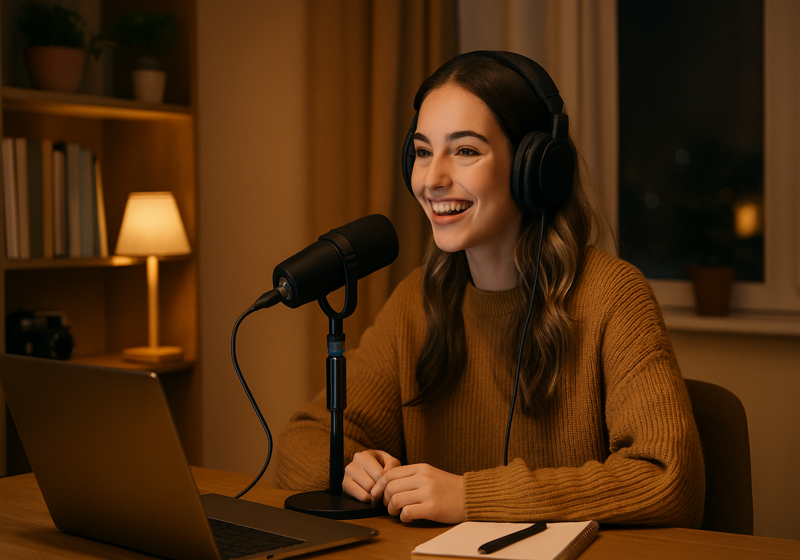Table of Contents
Over the past decade, podcasts have shifted from niche channels to a global phenomenon, revolutionising the way we keep up with the news, look for entertainment stories, find creative inspiration and deepen our knowledge on specific subjects.
According to statistics from Backlinko, serial audio broadcast consumption is rising steadily across the globe, reaching 584 million users in 2025. With 3.5 million podcasts and over 175 million episodes published worldwide (Digitalsilk data), the audio content market has grown enormously, attracting investment from businesses, freelancers, newspapers and advertising agencies.
Thepodcasting.org has published statistics showing that podcasts are widely enjoyed across all age categories, but they are particularly popular among younger users: the 18–34 group represents 65% of their global audience.
Podcasts’ relatively low production costs, easy distribution and accessibility – they are available to enjoy anywhere, anytime – have led to the format’s rapid rise. The boom in digital audio content has enabled creatives, journalists, business leaders and professionals to share their ideas and experiences more simply and directly, while also inviting influential people in a particular field to share their opinions and points of view.
In this article, we’ll discover why podcasts have become one of the most popular and effective ways of presenting information and entertainment content to a global audience, and explore how to navigate the various programmes available. And to finish off we’ll give you a brief overview of some of the most interesting broadcasts out there dedicated to creativity, design and running a business.
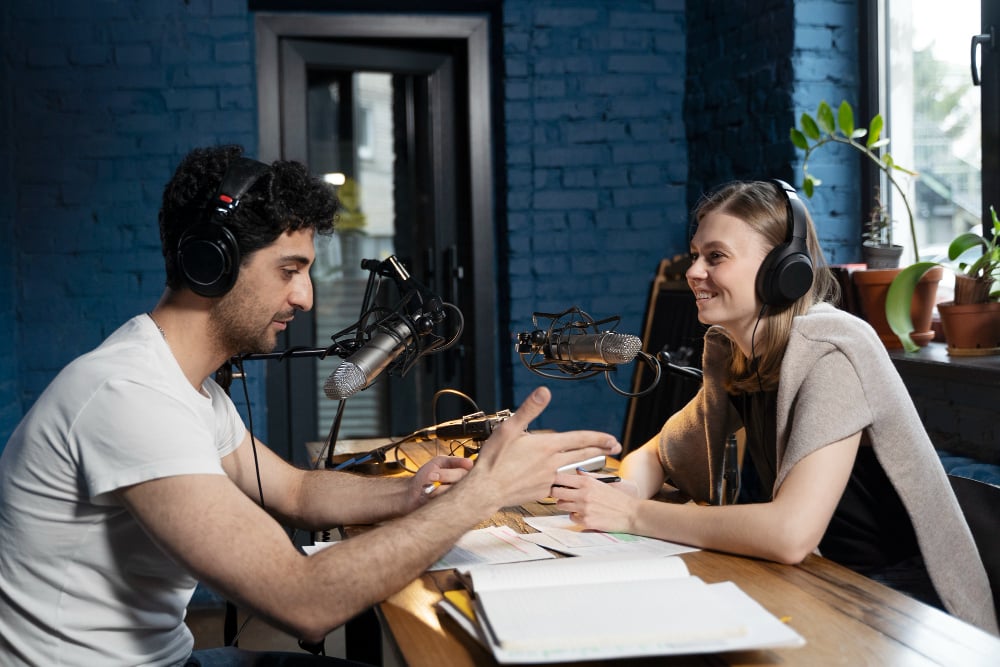
Why are podcasts so popular?
The success of on-demand audio content has not appeared from nothing: there are some precise reasons for the format’s incessant growth, connected to the public’s tastes and needs.
Accessibility
You can listen to podcasts anywhere – in the car, on the train, or even on your bike – and while you’re doing other things, like cooking, playing sport or sitting in a doctor’s waiting room. All you need is a pair of earbuds and a smartphone and you can access a vast catalogue of content, designed to entertain, impart knowledge or inspire listeners.
Engagement
Unlike other media, podcasts create an intimate and direct relationship with the listener. The voices, pauses and emotions conveyed through audio content generate empathy and trust in users, as data from various platforms has shown. This leads to greater public engagement and loyalty: according to Designrush, 70% of listeners finish the episodes they start, and 46% of them listen within 24 hours of the episode’s release.
This relationship of trust also translates into higher financial returns for the businesses that decide to invest in advertising: Zipco data indicates that 48% of users bought a product or service after hearing it described in a podcast.
Flexibility
Podcasts are extremely flexible in format terms: you can opt for short episodes, even as little as 5–10 minutes, or longer ones of an hour or more. This versatility allows creators to produce myriad different forms of content, from fiction podcasts based on made-up stories and characters to educational and entertainment programmes.
Affordability
Serial audio content can be created with just a few tools: all you need is a microphone and some high-quality headphones, audio recording and editing software and a silent recording space. The low production costs have encouraged the spread of original, independent programmes, greatly diversifying the content on offer and giving a voice to new perspectives that the mainstream media often overlook. The downside of this is that it has also encouraged some people to create low-quality podcasts, designed more as self-promotion tools than ways to offer authentic and genuinely valuable content.
Versatility
As we’ve seen, podcasts can create a loyal and engaged audience that follows the episodes week in, week out. They share their serial nature with TV programmes, and indeed many successful broadcasts have gone on to become renowned TV series. Homecoming, for example, is based on a podcast that describes the experience of a social worker in a facility that helps soldiers reintegrate into civilian life. And the true crime series Dirty John was taken from a podcast of the same name by journalist Christopher Goffard, tracing the true story of Debra Newell, a woman who gradually discovers her partner’s secrets and lies and descends into a spiral of threats and abuse.
TV adaptations fuel the growth of podcasts still further, pushing many viewers to listen to the original audio content after watching the series, to find out more details or simply to compare the two formats.
Branding tools
In our article How to use podcasts in marketing we saw that on-demand audio programmes are an excellent way to strengthen a brand or professional’s reputation and renown. Branded podcasts allow you to convey your brand’s values through authentic and engaging stories. They also offer various monetisation opportunities: from advertisements and premium subscriber content through to building loyal communities that support the project financially through platforms like Patreon or Substack.
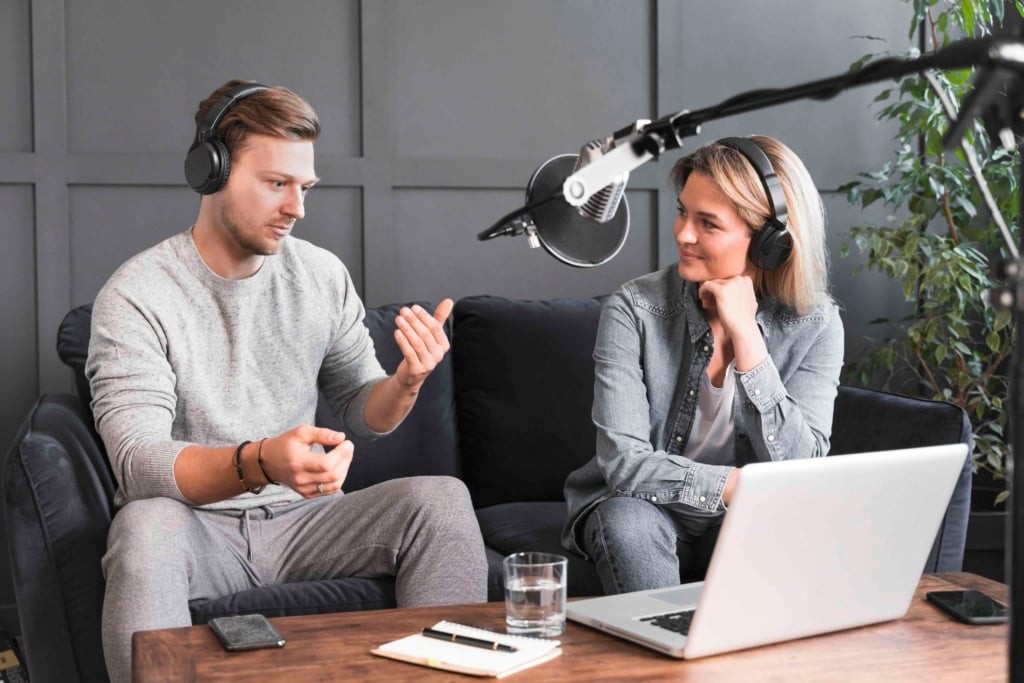
How to choose high-quality podcasts
With so many podcast options to choose from, how can you find your way around them and choose the best? Here are some useful tips:
- First of all, it is worth taking a look at user reviews and the rankings of the most-listened-to programmes on the main platforms – such as Spotify, Audible and Apple Podcasts – or choosing the broadcasts that have received the most awards and prizes.
- You also need to pay attention to the technical quality – you want clear, well-edited audio, a balanced pace and an engaging host – and the content, which should include interesting and original insight, compelling stories or unusual and unconventional points of view.
- Another important criterion is the podcaster’s credibility: it is best to go for creators with real experience of the subject being covered, rather than those who pretend to be experts just to obtain visibility or financial gain.
Now let’s take a look at a small selection of the most interesting podcasts relating to design, creativity and running a business.
Design and creativity
Design Matters is a podcast founded in 2005 by the designer, author and brand strategist Debbie Millman. The ‘first and longest-running podcast about design’, as Millman herself describes it, began life as an experimental project, but over the years it has evolved into one of the world’s most authoritative broadcasts. Over the course of almost two decades, Millman has interviewed over 250 influential figures, including world-renowned designers, artists, writers, journalists, architects and contemporary musicians. The guests include names of the calibre of Stefan Sagmeister, Paula Scher and Massimo Vignelli, alongside business leaders, sociology experts and famous actors. The podcast has received numerous awards for the quality of its interviews, which explore the guests’ creative processes and experiences in great detail. Design Matters offers valuable insights into how creativity can influence our society, and it is an excellent source of inspiration for those who see design as a tool to interpret and improve the world around them.
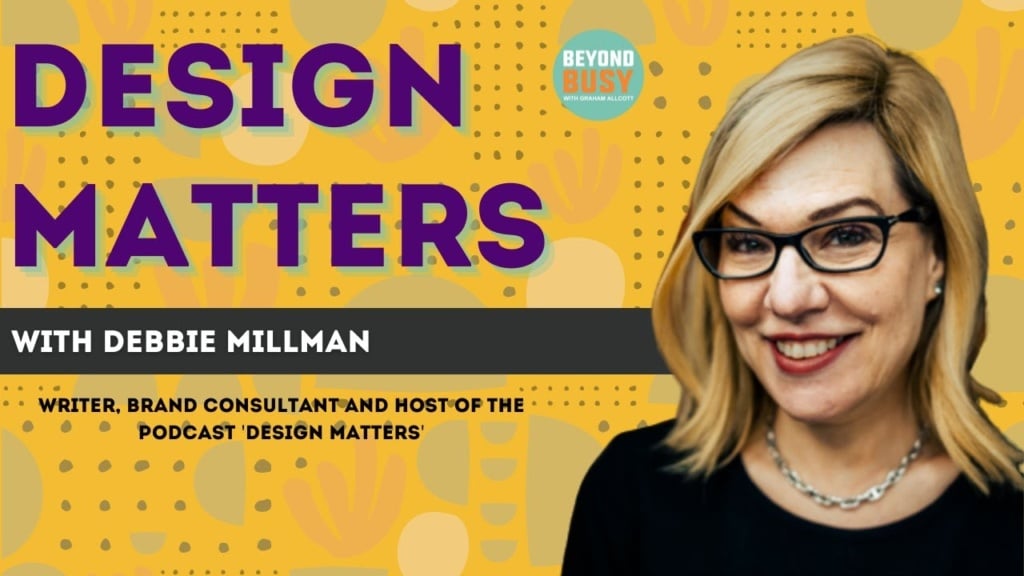
99% Invisible is a weekly podcast created and hosted by radio producer Roman Mars, which offers an original and captivating exploration of how architecture, design and creativity shape our universe, often without us realising it. Using accessible language and an engaging narrative style, Mars describes the stories, decisions and ideas hidden behind everyday design objects: from shop and road signs to benches and subway graphics. This multi-award-winning programme stands out for its ability to make the design of apparently ordinary things both understandable and interesting, revealing the creative process and choices that spawned the objects and structures that are now essential to our everyday life.
Business
The Diary of a CEO is one of the world’s most popular business and entrepreneurship podcasts, tackling topics like personal development, leadership and mental health. Created in 2017 by the British businessman Steven Bartlett, it provides an intimate look at Bartlett’s life and the experiences of the guests he interviews. In 2025, the programme reached 11 million subscribers on YouTube and 25 million social media followers, and was named Best International Podcast at the iHeartRadio Podcast Awards 2025.
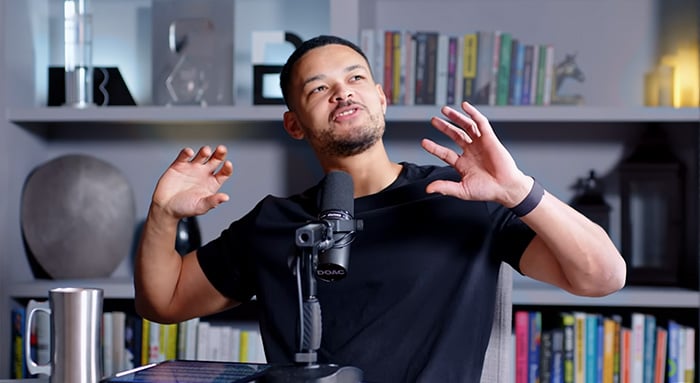
Copyright: https://stevenbartlett.com/doac/
The podcast’s stand-out feature is its ability to shatter traditional business storytelling stereotypes, which often depict success as a linear, plain-sailing process. Bartlett, meanwhile, chooses to explore the difficulties and setbacks you must overcome before reaching a particular goal. He invites guests from a wide range of sectors – business leaders, celebrities, artists and athletes – who offer diverse points of view on topics like failure and discipline. Another of the programme’s strong points is the breadth of its scope, tackling everything from business issues to wellbeing and mental health, including offering tips on how to handle anxiety and stress and rediscover your inner balance.
In his podcast Disruptors, Rob Moore – an entrepreneur and author of the international bestsellers Life Leverage and Money – interviews successful authors, businessmen, investors, athletes and inventors whose innovative ideas have revolutionised a particular sector or market niche. The programme covers a vast array of themes, including resilience, public speaking, personal growth and even controversial topics like money, masculinity and feminism.
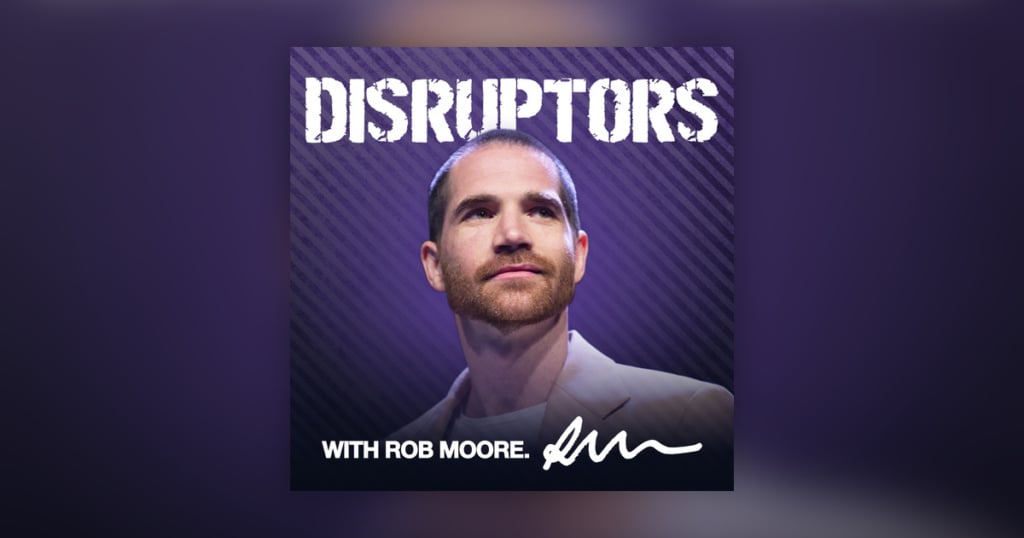
Disruptors is based on a rather original concept: its interviews are unscripted and unedited, so as to provide a more authentic and genuine perspective on the guests’ experiences and views. Based on his own past and on others’ testimonies, Moore offers practical tips and strategies on how to set up and grow a business, build a solid personal brand and develop the abilities required to build relationships.
In a highly crowded digital ecosystem, podcasts have established themselves as one of the most accessible and engaging channels for creating informative or entertainment content and building profound relationships with listeners. The format is a useful tool both for people who want to share their ideas as part of a personal or professional project, and for those who want to learn from other people’s experiences and points of view to broaden their own knowledge.

